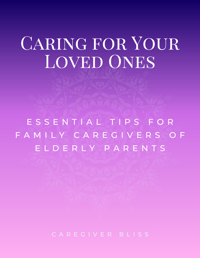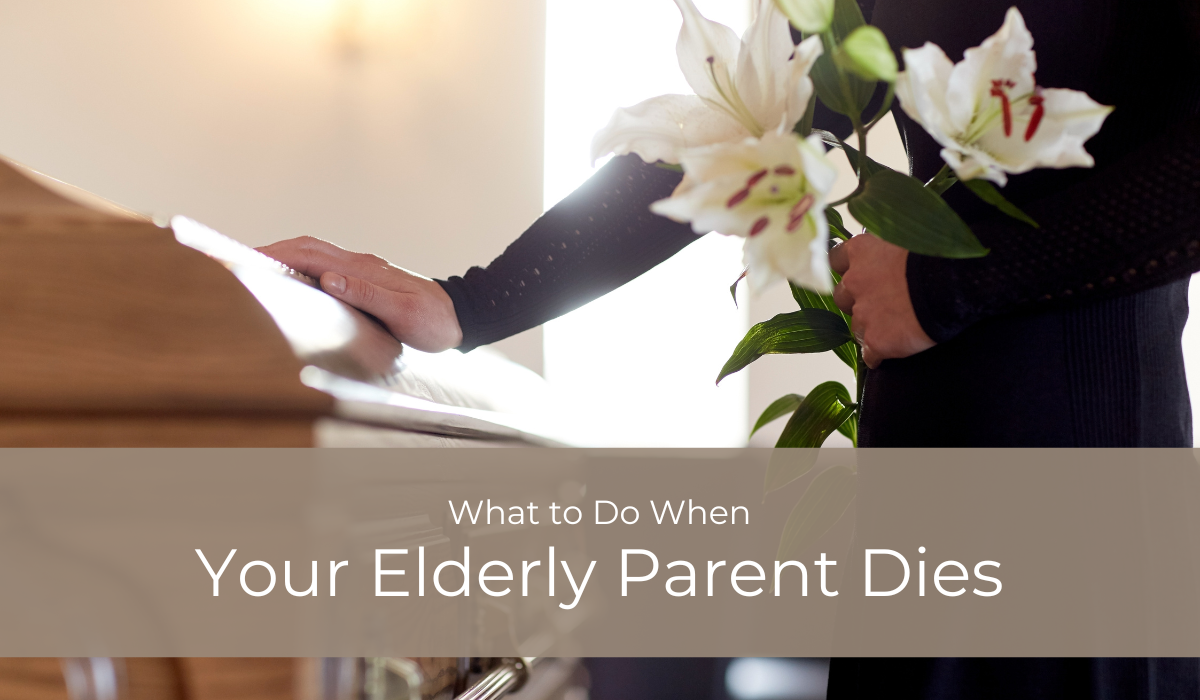Losing a loved one is never easy, and when it's your elderly parent, it can be especially challenging. It's normal to feel overwhelmed, sad, and confused during this difficult time. In this article, we will discuss some steps you can take when your elderly parent passes away to help you navigate this emotional journey.
Take Time to Grieve:
The first thing to remember is that it's okay to grieve. Losing a parent is a significant loss, and everyone processes their grief differently. You may feel sadness, anger, guilt, or even relief – all of these emotions are normal. Allow yourself the time and space to mourn in your own way.
Notify Family and Friends:
After the passing of your elderly parent, it's essential to let family members and close friends know. This can be emotionally challenging, but it's crucial for them to offer support and condolences during this time.
Contact a Funeral Home:
Most people choose to have a funeral or memorial service to honor their loved one. Contact a local funeral home to discuss the options and make arrangements. They can guide you through the process of planning a service or cremation, taking care of necessary paperwork, and organizing transportation.
Review Legal Documents:
Gather all the important documents, such as your parent's will, life insurance policies, and any advance directives. If there is a will, contact an attorney to help you with the legal aspects of settling your parent's affairs. If there isn't a will, legal procedures may vary depending on your location.
Handle Financial Matters:
Review your parent's financial situation, including bank accounts, investments, and outstanding debts. Notify banks, creditors, and government agencies about your parent's passing. If you're uncertain about managing finances, consider consulting a financial advisor or an attorney.
Clear Out Personal Belongings:
Going through your parent's personal belongings can be emotionally challenging. Take your time and enlist the help of family members if needed. You can decide what to keep, donate, or sell.
Seek Support:
Grief can be a heavy burden to bear alone. Reach out to friends, family members, or a grief support group to share your feelings and experiences. It's essential to lean on others for emotional support during this time.
Take Care of Yourself:
Caring for an elderly parent, especially during their final days, can be physically and emotionally draining. After their passing, make sure to prioritize self-care. Get enough rest, eat well, and consider speaking to a therapist or counselor to help you navigate your grief.
Plan a Tribute:
Consider creating a tribute to honor your parent's memory. This could be a scrapbook, a memorial video, or a special event with friends and family. Celebrating their life can provide closure and healing.
Consider Your Own Future:
Losing a parent often prompts people to reflect on their own lives and priorities. Take some time to think about your own goals, values, and what you want to accomplish in the future.
In conclusion, losing an elderly parent is a difficult and emotional experience. Remember that there is no right or wrong way to grieve, and it's essential to take things at your own pace. Seek support when needed, and remember that you are not alone in this journey. With time, you will find a way to honor your parent's memory while also moving forward with your own life.
We'd love to hear from you! Have you experienced the loss of an elderly parent, or do you have additional advice to share? Please leave your thoughts, questions, or personal experiences in the comments below. Your insights can provide valuable support and guidance to others navigating this challenging journey.
Free Guide:
Caring For Your Loved Ones
 Attention family caregivers! Are you struggling to provide the best care for your aging parents? Don't worry, we've got you covered.
Attention family caregivers! Are you struggling to provide the best care for your aging parents? Don't worry, we've got you covered.
Download our free guide, Caring for Your Loved Ones: 10 Essential Tips for Family Caregivers of Elderly Parents, and unlock the secrets to becoming an exceptional caregiver.
From adapting the home environment to promoting independence, this invaluable resource will transform your caregiving experience into a more rewarding journey. Don't wait—give your loved ones the care they deserve, and download your free copy today!

